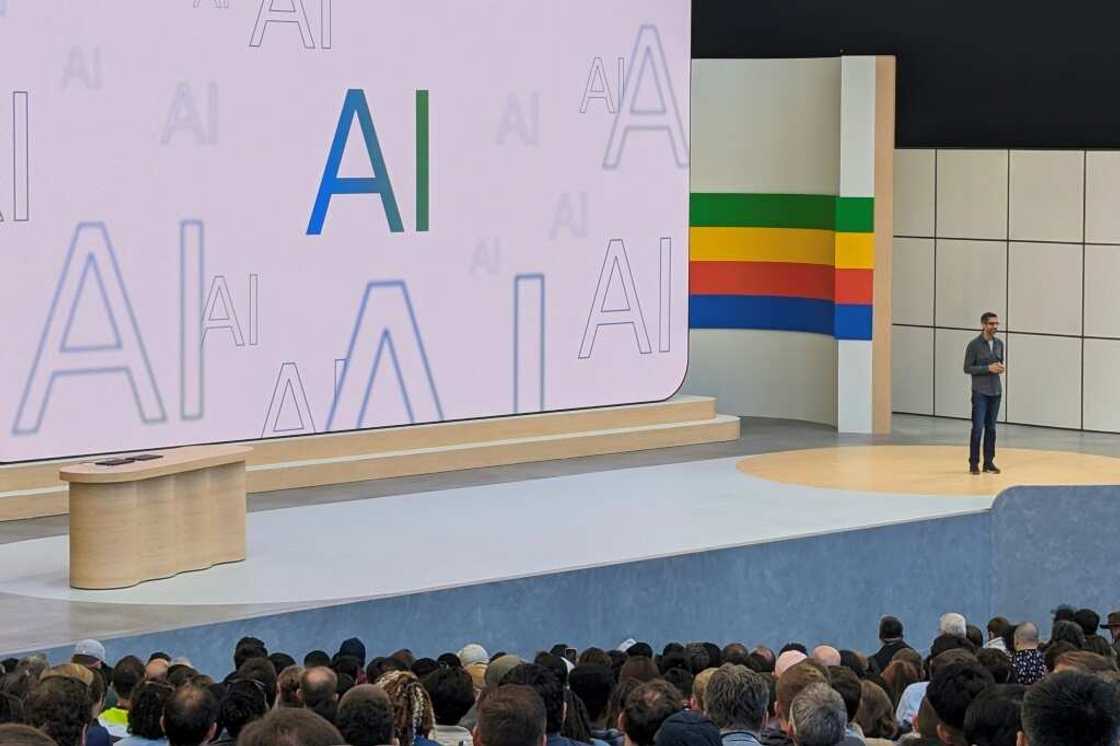AI bubble or 'revolution'? OpenAI's big payday fuels debate

Source: AFP
Fear of missing out has rocketed the value of artificial intelligence companies, despite few signs as to when the technology will turn a profit, raising talk of AI overenthusiasm.
The mystery deepens when it comes to predicting which generative AI firms will prevail, according to analysts interviewed by AFP.
ChatGPT-maker OpenAI secured $6.6 billion in a funding round that propelled its valuation to an eye-popping $157 billion, sparking new worries there is an AI bubble poised to burst.
"We are in the bubble where all the vendors are running around saying you have to deploy it as the latest digital transformation move," independent tech analyst Rob Enderle of Enderle Group said of generative AI.
"I expect this ugly phase for the next two to three years, but then things should settle."
To the critics, buyers don't really understand the technology, and the market needed for it to thrive is not mature yet.
Enderle also contended that investors are pouring money into generative AI companies with the mistaken notion we are close to technology that has computers thinking the way humans do, called general artificial intelligence.
That "holy grail" won't show up until 2030 at the earliest, he said.
'Revolution' is here
Industry titans Amazon, Google, Meta and Microsoft have thrown their weight behind the technology, entering into partnerships and pushing out products to accelerate adoption.
But the tech giants are spending big to provide sometimes flawed features that for now cost them more than they take in from users.
The huge investments in OpenAI shows that Big Tech is willing to sink "substantial cash into a company that's dealing with significant operation losses," Emarketer analyst Grace Harmon said of the OpenAI funding round.
There's a "lingering fear of underinvesting in AI and losing out...even if investments are not guaranteed to provide returns," she said.
Dan Ives, a Wedbush Securities analyst, is one of Wall Street's biggest believers in generative AI's importance and compared ChatGPT's emergence to an "iPhone moment" that will see one trillion dollars in spending during the next three years.
An "AI Revolution is not just at our doorstep, but is actively shaping the future of the tech world," he said after OpenAI's historic fund-raise.
Wall Street for now stands firmly with Ives and has sent the stock price of AI-chasing tech giants to record levels since ChatGPT burst on the scene in late 2022.
Nvidia, the AI-chip juggernaut, in June briefly became the world's biggest company by market valuation amid the frenzy.
But according to media reports, OpenAI will lose $5 billion this year on sales of $3.7 billion.
The company told investors the pain will be short-lived and that revenue will rise exponentially, hitting a whopping $100 billion in 2029.
More than poems?
The question is whether people will pay for generative AI services such as Microsoft's CoPilot that depends on OpenAI technology, said Creative Strategies analyst Carolina Milanesi, who pushed back against the idea of an AI bubble.
"Consumers are going to start going beyond the write-the-poem-for-me stuff," Milanesi said.
"It will become part of our lives and we will depend on it, because we will be forced to."
But for now, the generative AI business model is tough, since data center and computing power costs dwarf revenue, according to analysts.
Still, Milanesi doesn't think the tech industry is getting carried away with generative AI.
"How this shakes out is the way to think about it, not so much the bubble bursting and everyone losing out," Milanesi said.
"It's a bit of a Darwin situation where the survival of the fittest is happening," she said.
And while there is more excitement about generative AI than real proof of its success, the technology is moving exceptionally fast.
"Investors are not sure what the destination is, but everybody is jumping on the boat and they don't want to be left behind," Enderle said.
"That typically ends badly," he said.
PAY ATTENTION: Сheck out news that is picked exactly for YOU ➡️ find the “Recommended for you” block on the home page and enjoy!
Source: AFP






